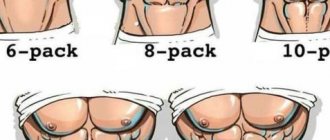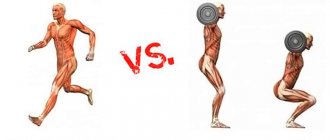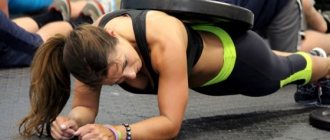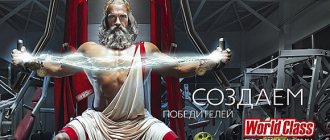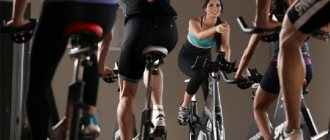Tips and recommendations from a professional are necessary for every person who strives to achieve high results in sports. When planning sports training, professional assistance from a mentor is often required. His role can be played by a professional athlete with extensive experience and well-deserved status. A qualified trainer has his own achievements, diplomas and relevant education. He will be able to conduct a medical examination and select workouts taking into account the characteristics of the body, the condition of the spine and joints.
As for the instructor, he completed the course and received a certificate that allows him to train other people. He is well versed in training and is able to select exercises to suit his goals. He has a sports background and has spent considerable time in the gym himself. A certified instructor knows some psychotypes and features of working with muscle mass.
How to choose a gym and trainer
When choosing a gym, you need to be guided by three important factors. First: the gym should be as close as possible to home or work, then there will be no reason to shirk once again: “Oh, it’s a long way to go, I’m tired.” You should choose the hall that is right under your nose and go there as often as is convenient for you.
The second factor is the equipment in the hall. For me personally, this comes first. The effectiveness and variety of classes depends on the quantity and quality of simulators. You need all the equipment for the upper body, for the lower body, as varied as possible, and it is desirable that each simulator should be more than one copy. Otherwise, if you come to study during rush hour, from five to nine in the evening, you will stand in line. If there are several simulators, the lesson will be more condensed and effective.
The third factor is the coaching staff. If the coach is dear to you, and he is really good, you can go further to him. But it is best to look for a hall that meets all three basic requirements, plus that you are satisfied with the cost of the subscription.
#7 Physical fitness
A very ambiguous criterion, but still you need to pay attention to it. If your future coach is in excellent shape , this may indirectly indicate that he does an excellent job with at least one client - himself. If not, this does not mean that you should refuse a coach.
There can be many reasons for a trainer’s poor physical shape - health problems, age-related decline in testosterone, a recent injury, a period of mass gain, an intensive schedule, etc. Many of them can seriously affect physical fitness, but they do not at all interfere with being a successful coach.
Who needs a personal trainer?
When planning to work out with a personal trainer, it is better to choose a cheaper gym than to buy a subscription to an expensive fitness center and work out on your own. Self-study can be completely ineffective - and here's why.
There is a category of people about whom I say: “They have an untalented body.” They can be smart and developed, but they cannot repeat the exercise the first, second, or tenth time. They need an overseer who will constantly say: “Do this and that.”
For example, with one girl in my care, it took us a month to start squatting correctly. But for some, it’s enough to show it once or twice, and the person is already doing everything correctly.
Everyone develops motor skills differently: some learn it faster, some learn it more slowly. It depends on the course of your entire life. If you have the ability to draw or play the piano, and then come to the gym and start working with a barbell, then it is quite possible that it will not start working out right away.
People who have ever engaged in any type of coordination physical activity, such as dancing, develop motor skills faster. Therefore, I consider it advisable to send a child to any sports section as a child. This instills discipline, responsibility, self-control and also develops motor skills.
#3 Sports career
A good sports career, awards and titles are a good argument in favor, but not always. Not every good athlete can become a successful coach, just like vice versa. Moreover, professional athletes often begin to realize their own ambitions on their clients and turn a blind eye to their real needs.
Trainers of this kind can provide their clients with real sports training or make excessive demands on them - just like in competitions. Nothing good will come of this approach, because your goals and the body’s capabilities can easily be ignored.
How to spot a bad coach?
You won't be able to tell the difference between good and bad by asking professional questions. A person who does not understand anything about strength exercises risks getting into trouble very quickly, because the trainer is still more familiar with the topic and will find something to answer. All you need to look at is personality traits, how empathic your future mentor is.
He must be involved in the process. If he's standing with his phone, get out! He stands and looks at you - good, let's take it.
Finally, the coach must be educated. Know what mitochondria are, pulse zones, what strength training and endurance training are, why cardio training is necessary. If he says that they are not important, then we simply do not hire such a person. Through communication, all this can be found out.
Here comes a plump girl, and the trainer makes her lift weights. She becomes strong and powerful, but this does not make her look slimmer. Everything is very simple here: the coach needs to sell his “staff”. They all want money.
No one will say: “Manya, you’re still plump, don’t come to me - here’s a diet with a calorie deficit, work out on the cardio machine, and come to me when you lose weight.”
He will say: “Manya, what kind of cardio? You and I will now lose great weight using dumbbells!” Manya hung her ears and went to do strength training.
We must remember: your goals come first, and what the coach suggests either matches this goal or it does not. If you have excess weight of more than five kilograms, the first thing you need to pay attention to is cardio training, a deficit diet and weight loss. If you've lost weight, let's go workout.
Or we lift in an easy mode, but at the same time we still do cardio training and lose weight. No one is stopping Manya from taking dumbbells and doing light exercises to strengthen the musculoskeletal system, gradually preparing for the load. And once you lose weight, you can start doing strength training.
Choosing the right instructor
As soon as you enter the gym for the first time, you will immediately see the instructors' gaze directed at you. Each instructor immediately sees a new girl who does not understand fitness, whom he can direct to the path of truth (victim).
From my personal experience: from the very beginning of my visits, I was lucky to meet, as it later turned out, a very competent instructor who taught me how to properly work on the machines and perform various exercises.
Then, over the course of a month, instructors passing by me casually told me that I was doing something wrong. Each of them commented on the execution of the exercise in his own way, saying that each other advised incorrectly.
To be honest, it was funny for me to watch all this, their tackles were similar to the wedding dances of peacocks, when each of them tries to convince me that he is better than others in the hope of getting payment from me for his services. This happens not only to me, the instructors also court other clients of the gym in a similar way, I constantly observe this.
What is the optimal weight loss per month of training?
I also found out from my own experience that not all coaches are friends with the PP. There are even those who speak outright nonsense. Some people put clients on a low-carb diet so they can see the effects faster and say, “Wow, coach, you’re a super specialist!” And the fact that at the same time everything hangs down, their face is drawn, does not bother anyone.
A reasonable amount is three to four kilograms per month. If it’s more, it means that we were stupidly undernourished or trained too much, and our diet did not correspond to our energy expenditure.
It is possible that the coach does not understand nutrition, but he understands training. Then you need to follow a diet from a competent specialist, and work with a trainer only in the gym.
The trouble is that now just anyone is becoming a trainer, including people with three-day courses behind them and even without any education at all. But education sometimes means nothing. There are trainers with higher education who know nothing about their work: they studied for a long time or poorly, they passed the sessions with C grades. And there are specialists without education who develop, read, study and achieve a high degree of qualification. The level of a trainer can only be determined through personal communication and the results on your body and well-being.
The first lesson is indicative
Don’t rush to immediately purchase a set of classes from your chosen instructor.
Take one or two lessons and observe his behavior.
Before starting training, a competent specialist will definitely ask about your health status, existing diseases and possible limitations.
A fitness trainer must know how to properly work with people who have disabilities due to osteochondrosis, vertebral hernias, scoliosis, obesity or hypertension.
He must competently draw up a training program, taking into account existing diseases, dose the loads and monitor the correct execution of the elements.
This is where the whole value of the instructor’s work lies.
Without such help, you risk harming yourself and worsening your existing disease.
Therefore, pay attention to whether the coach will be interested in your health.
The lack of questions and a dismissive attitude towards your problems is a clear reason to find another instructor.
Do not be alarmed if the specialist, in addition to asking questions, asks you to measure your blood pressure or begins to examine your pupils.
Moreover, it is even welcome if an experienced trainer checks your flexibility and asks about the sensations in a particular position.
What kind of relationship should you have with your coach?
I advise you to choose a coach with your heart, like a loved one. You should be comfortable with him, you should have a common goal - to make you healthier. So that whoever comes to the gym becomes an improved version of himself: strong, healthy, robust, less sick.
Some ambitious trainers want results in the shortest possible time; as a result, the client gets “overtrained”, has a fatigued nervous system, and begins to get sick; as a result, he gives up training and says: “Screw this sport!” In fact, I just got a bad coach. I emphasize once again that you shouldn’t do too much to please his ambitions. Your task is to improve your health and musculoskeletal system, and improve your appearance.
One more nuance for women. Choose a coach with whom you cannot have a personal relationship. Because if you have an affair with a coach, you will fly to training, and when you break up, you will stop training altogether. You need the training process not to depend on personal relationships.
Cost of services
For clients who have experience in sports and know the technique of doing exercises well, it is enough to order an individual program. The trainer will draw it up for a certain period of time, taking into account the client’s capabilities and goals.
This service has a low cost, but is suitable only for experienced visitors to sports clubs.
The most popular classes today are classes with an instructor in small groups. Typically a group consists of 2-7 people with the same level of training. Gender and age may also be taken into account. Such training is affordable, but not effective enough for beginner clients.
Fast and high-quality achievement of goals is possible only with individual lessons with a trainer. Such training ensures safety and correct development of exercise techniques. From the beginning to the end of the lesson, the client is engaged under supervision; a personal trainer assesses his physical condition: checks his pulse, correct breathing, and, if necessary, changes the intensity and load.
One-on-one training is expensive, but is recommended for beginners and clients with chronic illnesses or physical limitations.
How to properly recover after a workout
An important part of the training process is recovery. A competent trainer knows how to both load and restore a person.
It is advisable for the mentor to record working weights during the process, write down programs, and draw up a plan for each workout in order to know how much his client has progressed from session to session. He should definitely ask: “How do you feel?” He can write a message: “How are your legs after training, how is your back?”
The sauna which is loved by many as a relaxing remedy after a workout, is an additional burden on the cardiovascular system. Massage is more effective - a universal means of recovery. It can be done after or between workouts. Massage is needed to straighten muscles that are cramped after a workout so that they are stretched and recover better. Lymphatic drainage improves, and various toxins and breakdown products are eliminated from the body faster.
There is also myofascial release - a type of massage that is performed with various devices: rollers, rollers, balls, etc. This way you can both prepare for training and recover after it. The fascia will be in the best condition to supply all the nutrients to the muscle fibers, properly distribute the load before training and relax the muscles after.
Listen to what the instructor says
Thinking about how to test a trainer, I came up with this plan: there are a lot of exercises on the Internet and by downloading them to your phone, you can safely approach any instructors you like and ask them to show you how to do this exercise correctly in reality and help with advice .
Below are real statements from instructors and observations of their reactions. I showed some trainers this photo, asking them to explain what kind of exercise it was and why it was needed.
And in response I received the following comments:
- “You can show a lot of things on the Internet,” then the man turned around, rolled his eyes and walked away.
- “This exercise is included in the mandatory training program for football players,” - so what??
- “You don’t need this!” Question: "Why?" Answer: “No need and that’s all!”
Most likely, these answers imply the following subtext: “pay for the training and I will explain everything to you!”
Since there are cases when people ask a passing trainer to show how to turn on the machine, and they respond by saying: “Pay the money, we’ll show you!”
Let's sum it up
The coach should become a mentor for your child in the world of sports, constantly inspiring him and setting an example. At any stage, the child must understand that he is not alone, he is supported, and will not be scolded for his shortcomings. A celebrity coach does not provide confidence in building a successful career for his students. After all, the most important thing is to find a person for whom being a coach is the main business of life, who is willing to take risks, introduce new things and teach others not to give up and fight to the end.
It is very important that an athlete loves figure skating! I don’t have a goal to teach a child to perform a series of movements on the ice, I try to unlock his potential and develop a love for sports. I try to find an individual approach to each child, based on his character, interests, abilities and age,” figure skating coach Valery Babitsky shares his experience.
Be critical
Yes, it is important to trust the coach, but still filter his market. Read about training, talk to other enthusiasts. If you feel that you are being scammed into spending additional money (for example, on buying dietary supplements and sports nutrition), then this is a reason to be wary.
Over time, you yourself will understand whether you need protein shakes and pre-workout complexes; this is not a requirement for an amateur, but rather an indulgence and a reason to feel even more in the know.
Look at the clients
You need those who have obviously been involved in hardware for a long time, but are still practicing under someone's careful supervision. Don’t be afraid to question him - everyone loves it when their opinion is asked. They are proud of a good trainer and advertise his services in every possible way.
The author of the text adapts to the barbell under the guidance of coach Alexander Kiselev. By the way, there is a separate heartfelt article from him about important lessons.

